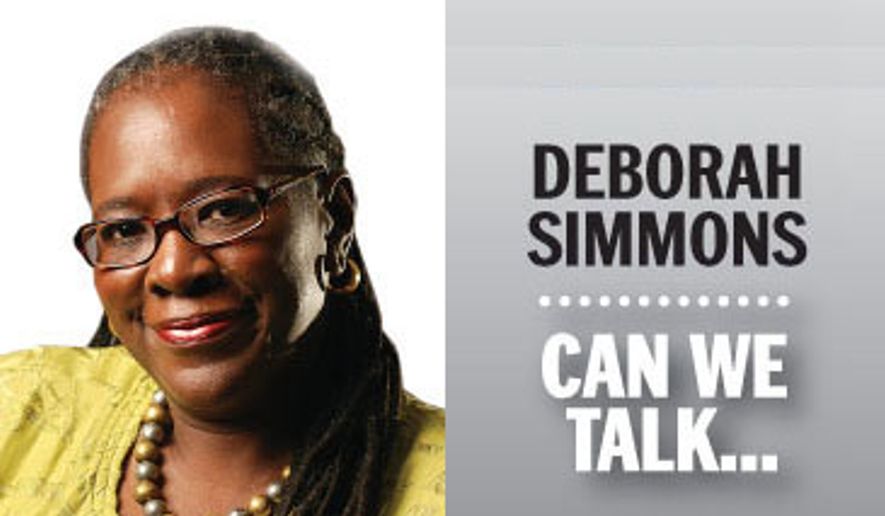ANALYSIS/OPINION:
Come on Howard University. Does it matter if you’re black or white? Has Howard really been discriminating again pregnant women? Pregnant white women?
That is a claim made by Rachel Dolezal when she filed an employment discrimination lawsuit in 2002 against the historically black school and its Art Department chairman, Alfred Smith, claiming reverse discrimination, “emotional distress” and more, thesmokinggun.com reported Monday.
“According to a Court of Appeals opinion, Dolezal’s lawsuit claimed discrimination based on race, pregnancy, family responsibilities and gender,” the site reported. She claimed that Mr. Smith and other school officials improperly blocked her appointment to a teaching assistant post, rejected her application for a post-graduate instructorship, and denied her scholarship aid while she was a student.
“The court opinion also noted that Dolezal claimed that the university’s decision to remove some of her artworks from a February 2001 student exhibition was ’motivated by a discriminatory purpose to favor African-American students over’ her.
“As detailed in the court opinion, Dolezal’s lawsuit contended that Howard was ’permeated with discriminatory intimidation, ridicule, and insult.’”
The suit was filed in D.C. Superior Court and was tossed. She appealed and lost in 2005, but not before being ordered to pay Howard $2,728.50 on appeal. The damages were leveled against her “in connection with an ’obstructive and vexatious’ court filing that sought to improperly delay her examination by an independent doctor.”
There’s much to know about Rachel Anne Dolezal, born Nov. 12, 1977, in Lincoln County, Montana, according to a birth certificate whose issue date is June 9, 2015.
While in D.C., she was known as Rachel Moore.
She is a mother.
She has more than one adopted brother and sister — all black or Haitian.
She moved to Washington state after she left Washington, D.C.
She is an artist, uses black images in her art and is an instructor of Africana studies.
She has said she is black/African-American. (The birth certificate states gender but not race/ethnicity.) Her parents say she is Caucasian and of European ancestry.
She’s a chameleon, and was a cute kid with freckles and wispy blond hair. Her hair has at times looked as dreadlocked as Bo Derek’s in the 1979 romantic comedy “10,” and she at times has appeared as a raven-haired beauty. Only her hairdresser knows for sure — maybe.
Oh, and did I say artist?
Miss Dolezal hit our radar screens when her estranged parents outed her last week, whitewashing her I-am-black tale.
Her parents also released other family photos, including a picture of Rachel and their son-in-law on the day of the wedding in 2000.
Her parents also say Miss Dolezal claims as her adopted brother as her son.
She was until Monday the president of the Spokane chapter of the NAACP.
“I have waited in deference while others expressed their feelings, beliefs, confusions and even conclusions — absent the full story,” Miss Dolezal’s letter of resignation said. “I am consistently committed to empowering marginalized voices and believe that many individuals have been heard in the last hours and days that would not otherwise have had a platform to weigh in on this important discussion.”
“This important discussion?”
Who cares whether Rachel Dolezal claims to be black or white? People have told lies about their race and heritage since well forever.
Some do it because they do not know, and so do it simply because they can.
Hollywood and book publishers and reality-crazed networks loved to make people make fools of themselves. People hide their Jewishness, people hide their blackness.
Miss Dolezal boxed herself in — unless her plans are to serialize her story, which she could easily do online as a self-publisher. An artist, she could even illustrate her own electronic tome.
We need much more insight into her method, motive and opportunity — three of the things police, lawyers and shrinks consider when digging their shovels into criminal, suspicious and vexatious acts.
Miss Dolezal’s actions are raising more than eyebrows and curious looks, and in this age of anything goes, everybody who really and truly cares should move cautiously on her behalf.
The judges’ comments regarding Miss Dolezal’s lawsuit years ago speak volumes.
• Deborah Simmons can be reached at dsimmons@washingtontimes.com.
• Deborah Simmons can be reached at dsimmons@washingtontimes.com.




Please read our comment policy before commenting.